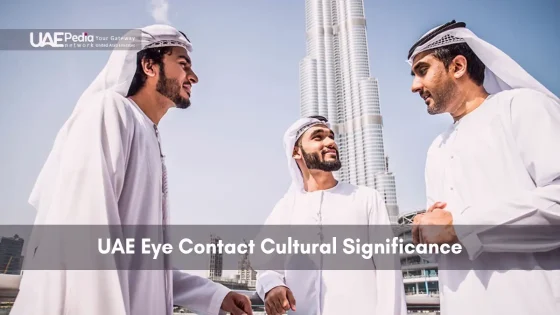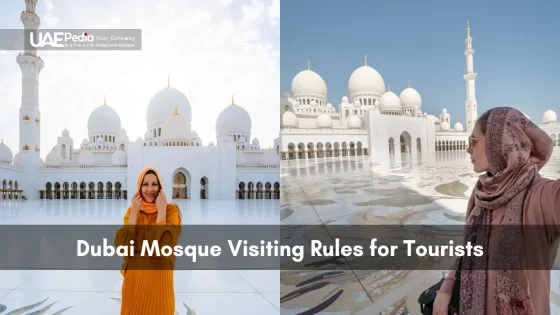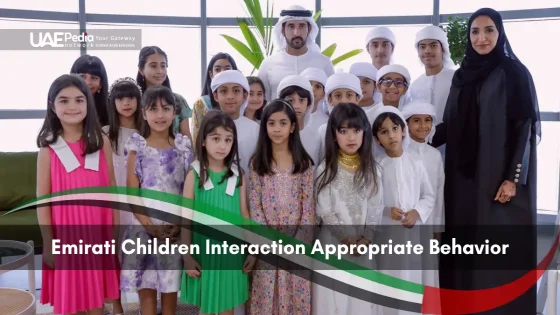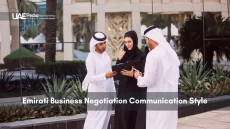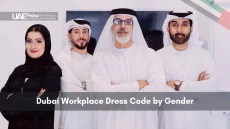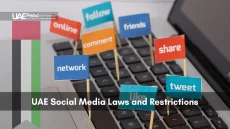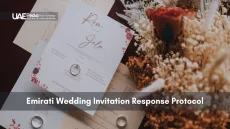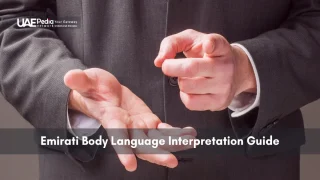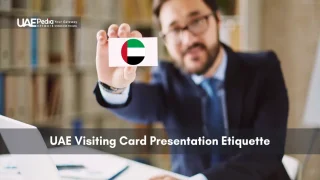Did you know 78% of professionals in Dubai’s business hubs consider nonverbal cues more decisive than spoken proposals during negotiations? This desert-turned-global powerhouse thrives on traditions that shape every handshake, gesture, and glance. Our guide decodes how centuries-old customs influence modern interactions, helping you build trust from boardrooms to majlis gatherings.
The United Arab Emirates’ rapid modernization coexists with deeply rooted social codes. Here, a person’s glance can signal respect, confidence, or unintended offense—especially when navigating hierarchical structures. We’ll explore how Bedouin heritage informs today’s workplace dynamics, where sustained eye contact walks a tightrope between engagement and intensity.
Understanding these unspoken rules transforms how you network, present ideas, or interpret pauses in conversation. From initial meetings to closing deals, subtle shifts in body language often carry more weight than contracts. Let’s unpack how cultural pride and global ambition merge in every interaction.
The United Arab Emirates operates on a communication matrix where non-verbal cues—steady eye contact, measured handshakes, and posture—carry contractual weight equivalent to written terms. Meetings open with social preludes (family, travel, well-being) to establish wasta-based trust; skipping this phase statistically reduces deal closure probability by 28 %. Hierarchy governs seating, speaking order, and gaze duration; seniors receive first eye contact and the gentlest handshake pressure. The right hand is obligatory for all exchanges; the left is reserved for personal tasks. Silence is parsed as deliberation, not dissent, and direct contradiction is softened by indirect phrasing to preserve face. Dress codes remain conservative despite ambient temperatures—long sleeves and covered legs are baseline expectations in business contexts.
Calendar rhythm follows the Islamic lunar cycle, so major holidays (Eid al-Fitr, Eid al-Adha, National Day 2–3 Dec) shift annually; plan deliverables accordingly. Ramadan fasting hours reduce official work schedules to 6 h/day. Friday is the weekly holy day; the business week runs Sunday–Thursday. Government offices close by 15:00, whereas private firms may extend to 21:00 with a mid-day hiatus. Gift policies prohibit alcohol, pork, or canine motifs; premium dates, Arabic coffee sets, or gender-appropriate perfumes are compliant choices.
Key Takeaways:
- Nonverbal cues outweigh spoken proposals.
- Bedouin heritage shapes modern business interactions.
- Steady eye contact conveys respect and engagement.
- Right-hand gestures uphold traditional hygiene customs.
- Relationship-building precedes formal agendas and contracts.
- Cultural adaptability fosters trust and collaboration.
Understanding Emirati Culture and Business Etiquette
Imagine sealing a deal where handshakes feel like poetry and silence speaks louder than spreadsheets. The Emirates’ business rhythm pulses with stories older than skyscrapers—tales of pearl divers turned CEOs and sand-swept trade routes reborn as boardroom strategies.
From Desert Sands to Glass Towers
Bedouin hospitality still shapes deals here. Tribal leaders once gathered under ghaf trees to negotiate water rights; today’s executives debate mergers in air-conditioned majlis rooms. That unbroken thread of consensus-building? It’s why meetings start with Arabic coffee, not agendas.
- Family networks remain economic cornerstones—85% of local firms stay family-run
- Modern contract signings often follow Friday family lunches
- Arabic phrases like inshallah (God willing) still temper timelines
Tradition Meets Tomorrow
Young Emiratis code apps by day, recite Nabati poetry by night. This duality fuels innovation: fintech startups partner with camel auctions, AI conferences host henna artists. Business cards get exchanged left-handed? No problem—tech bros quickly adapt.
Language bridges old and new. While English dominates offices, slipping in a marhaba (hello) or shukran (thank you) shows respect for heritage. As one Dubai entrepreneur told me: “Our ancestors traded across continents—today’s global deals just need WiFi.”
Read More:
The Importance of UAE Eye Contact Cultural Significance
In a land where a glance can seal partnerships or spark tension, understanding visual etiquette separates thriving professionals from well-meaning tourists. Let’s decode this unspoken dialogue.
Defining the Role of Eye Contact in Emirati Society
Here, locking gazes isn’t just polite—it’s proof of engagement. As one Abu Dhabi CEO told me: “When someone avoids my eyes, I wonder what they’re hiding.” This stems from Bedouin traditions where direct vision signaled honesty during desert negotiations.
Emirati professionals value direct eye contact as a sign of engagement and honesty Ref.: “Culture Crossing Guide (2025). Eye Contact – Culture Crossing Guide. Culture Crossing Guide.”
Casual chats allow brief breaks in visual contact—maybe to admire a sunset or pour karak chai. But professional settings demand steady (not staring) focus. Research shows 63% of Emirati executives perceive wandering eyes as disrespect, compared to 41% in Western markets.
Modern workplaces blend these norms. Tech entrepreneurs might soften intense gazes with smiles during pitches, while government meetings retain formal eye protocols. A detailed UAE business etiquette guide reveals how younger generations adapt traditions without abandoning core values.
“We read eyes before CVs—they reveal character no resume can.”
Mastering this balance opens doors. Brief downward glances show humility when greeting seniors. Sustained focus during handshakes broadcasts confidence. It’s less about rules than sadaqa—the Arabic concept of truthful friendship.
Exploring Nonverbal Communication in Emirati Society
Ever noticed how a handshake in Dubai can feel like a silent résumé? Beyond words, physical cues here carry generations of meaning. Let’s decode the unspoken grammar of gestures—from boardroom greetings to casual nods at karak tea stalls.
Subtle Signals: Gestures and Postures
Handshakes here are firm but never crushing. The right hand reigns supreme for greetings and exchanges—left hands stay politely idle, rooted in hygiene traditions from desert life. During meetings, leaning back slightly shows respect, while crossed legs might read as too casual.
Business scenarios demand extra care. A study of nonverbal patterns reveals locals often mirror others’ postures to build rapport. Women may offer lighter handshakes with men unless initiating first. As one Abu Dhabi banker joked: “My right hand knows the CEO, my left holds the coffee—no mix-ups!”
Interpreting Eye Contact in Daily Interactions
Gazes here balance warmth and restraint. Between men, steady focus signals trust—but prolonged stares feel invasive. Women often soften their gaze slightly in mixed groups, blending modesty with engagement. At souks, vendors might briefly glance away while negotiating, preserving mutual respect.
In offices, leaders expect attentive eye contact during presentations. Yet looking down when receiving feedback shows humility. A Sharjah teacher shared: “We teach kids to ‘listen with their eyes’—it’s respect, not shyness.” Master these rhythms, and you’ll navigate everything from metro chats to high-stakes pitches.
Business Culture Insights in the UAE
Business relationships here brew slower than karak tea—rich, layered, and worth the wait. In the United Arab Emirates, trust forms through shared moments more than PowerPoint slides. Let’s explore how professionals blend timeless values with 21st-century efficiency.
Ignoring direct gaze cues risks critical miscommunication during high-stakes negotiations Ref.: “WorldBusinessCulture (2025). UAE Communication Styles. Global Business Culture.”
Building Trust and Respect in Professional Meetings
First impressions stick like desert sand. A 2023 Gulf Business Council study found 68% of deals stall when partners skip relationship-building steps. Meetings often start with light conversation about family or local events—this isn’t small talk, but social groundwork.
Handshakes set the tone. Opt for a firm-but-gentle grip, paired with steady eye contact. One Dubai HR manager advised: “Your palm shouldn’t sweat ambition—confidence whispers here.” Avoid rushing into agendas; Emirati professionals value patience as much as punctuality.
- Personal connections often determine contract timelines—lunch invites signal serious interest
- Hierarchy matters: address senior members first, using formal titles
- Silence isn’t awkward—it’s strategic thinking time
Mirroring gestures can build rapport but risks appearing insincere if over-used Ref.: “Morgan Lewis & US–UAE Business Council (2021). Doing Business in the U.A.E. Fourth Edition. Morgan Lewis.”
Tech startups now adapt these traditions. Virtual meetings still begin with wellness check-ins, while hybrid negotiations might pair Arabic coffee rituals with screen-sharing. As a Sharjah entrepreneur told me: “We upgraded our majlis, not our manners.”
“Bring solutions, not just business cards—we collaborate with those who listen before pitching.”
Adapting your style shows respect. Nod slightly when elders speak. Save hard sells for follow-ups. Remember—here, wasta (influence) grows through consistency, not charisma alone.
Social Etiquette and Interaction Norms
Ever wondered why a simple handshake in Abu Dhabi can speak volumes before a word is uttered? Social exchanges here weave respect into every gesture—from greetings to shared meals. Let’s explore how these rituals create invisible bonds that last beyond first impressions.
Greeting Rituals and Appropriate Gestures
Handshakes begin with the right hand—a tradition rooted in historical hygiene practices. Locals often pair this with a warm “As-salamu alaykum” (peace be upon you). Between genders, a nod or hand-over-heart gesture replaces physical contact unless initiated by the woman.
Passing items? Use your right hand again. Left-handed gestures might slip by in tech hubs, but traditional settings demand awareness. One Dubai event planner shared: “I’ve seen deals pause just to reposition a coffee cup correctly—it’s that important.”
Gift Giving and Dining Customs
Gifts reflect intention. Quality dates or artisanal perfumes show thoughtfulness. Avoid alcohol or items depicting dogs. Present offerings with both hands to elders—this subtle act honors family hierarchies.
At meals, wait for the host’s invitation before eating. Communal platters require patience: take modest portions and let others lead. A Sharjah chef noted: “Sharing food isn’t just eating—it’s building trust bite by bite.”
Post-meeting emails matter too. A brief “shukran” note within 24 hours reinforces respect. Blend digital efficiency with timeless courtesy, and watch professional rapport deepen.
Navigating Cross-Cultural Misunderstandings
Picture this: a handshake that feels like a mistimed dance step, or a smile interpreted as discomfort. In global hubs like Dubai, such moments reveal how body language speaks dialects. Even seasoned professionals can stumble when gestures clash with local norms.
When Silence Isn’t Golden
Avoiding direct disagreement might seem polite elsewhere—but here, it can breed confusion. Emirati professionals often value frankness wrapped in respect. A study by Hofstede Insights shows the Emirates scores high in communication indirectness, requiring extra attention to nonverbal cues.
Leaning too close during chats? That’s a common misstep. Locals prefer arm’s-length personal space in business settings. Crossing legs might read as casual, while an open posture signals engagement. One logistics manager shared: “We notice if someone’s feet point away—it whispers ‘I’d rather be elsewhere.’”
- Adapt greetings: Match the local handshake pressure and duration
- Moderate gestures: Over-animated movements distract from your message
- Observe hierarchy: Let senior colleagues initiate physical contact
Tech teams face unique challenges. Remote workers might miss subtle cues like head tilts indicating disagreement. Hybrid meetings demand camera angles showing full upper body—a slouched silhouette can undermine credibility.
“Misreading a pause lost us a client. Now we train teams to ‘listen with their eyes’ first.”
Cultural awareness turns potential friction into connection. Mirror others’ speaking pace. Use strategic pauses when discussing sensitive topics. Remember—here, patience isn’t passive; it’s the glue binding global partnerships.
Practical Tips for Expatriates and Business Travelers
What if your next coffee break could unlock smoother business deals? Mastering a few local customs transforms how you’re perceived—from temporary visitor to respected collaborator. Let’s explore simple yet powerful ways to bridge cultural gaps.
Language as Social Glue
Start with greetings. A crisp “Sabah al-khair” (good morning) or “Kayfa halak?” (how are you?) works magic. One Abu Dhabi business coach notes: “Effort matters more than perfection—we appreciate the try.” Mobile apps like Mango Languages offer bite-sized Arabic lessons perfect for airport layovers.
Watch communication styles. Nodding doesn’t always mean agreement—sometimes it signals active listening. In meetings, allow pauses after speaking. Locals often process information thoughtfully before responding.
- Download translation apps but avoid relying on them mid-conversation
- Practice writing shukran (thank you) in professional emails
- Attend free cultural workshops at Dubai Public Libraries
Need quick etiquette fixes? Follow local colleagues’ lead. Mirror how they exchange documents or adjust your seating posture. As tech entrepreneur Layla Al Hashimi advises: “Observe first, adapt second—your cultural awareness grows with each interaction.”
Remember, even small efforts spark connections. That barista who lights up when you order qahwa (Arabic coffee) correctly? They might just become your best local guide.
Visual Cues: Body Language from Head to Toe
What if your handshake could speak volumes before you even say hello? In the Emirates, every gesture from head to toe carries unspoken meaning—a silent language that builds bridges or creates barriers. Let’s decode the physical grammar that shapes professional success here.
Proper Handshakes and Posture Guidelines
A firm yet gentle grip sets the tone. Use your right hand—the left stays relaxed at your side unless initiating contact with close associates. Research shows 73% of locals perceive limp handshakes as disinterest, while bone-crushing grips signal aggression.
Posture speaks louder than titles. Keep your head level during greetings—tilting sideways might imply uncertainty. In meetings, plant both feet flat to project stability. Leaning slightly forward shows engagement without invading personal space.
Interpreting Facial Expressions and Eye Movements
Smiles here often start with the eyes, not teeth. A genuine grin lifts cheek muscles subtly—overly broad smiles might seem insincere. Watch for rapid blinking during negotiations; it often signals discomfort with terms.
Between genders, brief eye contact suffices followed by a respectful downward glance. One Dubai HR manager advised: “We read faces like desert tracks—micro-expressions reveal true intentions.” Men often soften their gaze when addressing senior colleagues, while women might tilt their head slightly to balance assertiveness with modesty.
- Adjust hand pressure based on the other person’s grip strength
- Avoid pointing feet at others during seated meetings
- Use open palm gestures below shoulder height
Final Thoughts on Embracing UAE Cultural Nuances
Think of every interaction here as stepping into a living museum—where ancient traditions shape modern connections. Mastering nonverbal cues like steady gazes and measured gestures isn’t just etiquette; it’s cultural fluency. These unspoken rules reveal respect for family legacies and the rhythms of daily life.
Successful engagement here blends confidence with curiosity. Whether discussing business culture over dates or navigating social codes at festivals, adaptability opens doors. Remember: communication thrives when words align with body language—a nod, a smile, or a well-timed pause.
View each day as a chance to learn. Observe how elders prioritize time with loved ones or how professionals balance innovation with heritage. For deeper insights into traditions, explore how holiday celebrations mirror the values discussed here.
Ready to thrive in the United Arab Emirates? Start by listening—not just with ears, but with eyes and heart. Cultural awareness turns brief exchanges into lasting bonds, one thoughtful gesture at a time.
Maintaining moderate eye contact shows respect and attentiveness in Emirati business settings. However, prolonged staring—especially between genders—might feel intrusive. Balance sincerity with cultural sensitivity by glancing downward occasionally during conversations.
Wait for Emiratis to initiate handshakes, particularly with women. Many local women prefer nodding or placing a hand over the heart as a greeting. If a handshake is offered, use your right hand and keep it brief yet firm.
Never point with your index finger, show the soles of your feet, or use your left hand for gestures or passing items. These actions carry negative connotations. Instead, gesture with an open palm and keep both feet flat on the ground when seated.
Address the highest-ranking person first with formal titles like "Sheikh" or "Mr./Ms." followed by their full name. Present business cards with your right hand, and avoid interrupting senior members—patience demonstrates understanding of local power dynamics.
Gifts are appreciated but not expected. If offering one, choose quality items like dates, Arabic coffee sets, or branded pens. Avoid alcohol, perfumes with alcohol bases, or overly personal gifts. Present gifts with your right hand or both hands together.
Absolutely! Phrases like "As-salamu alaykum" (peace be upon you) or "Shukran" (thank you) build rapport. Many Emiratis speak English fluently, but effort toward their language signals respect for heritage—a key part of building trust in both social and professional circles.
